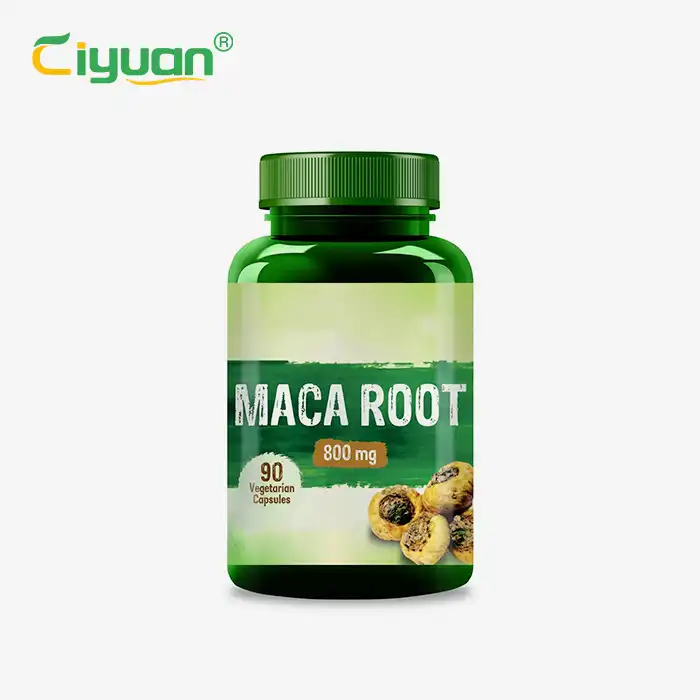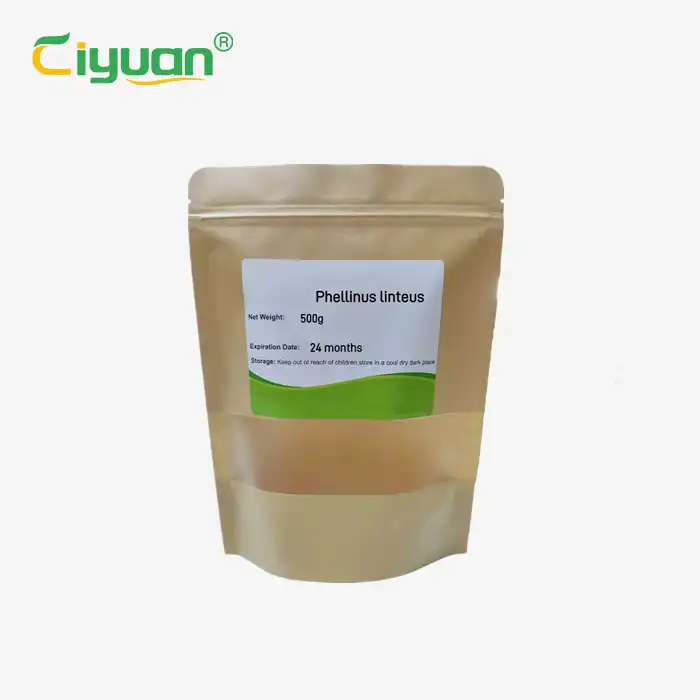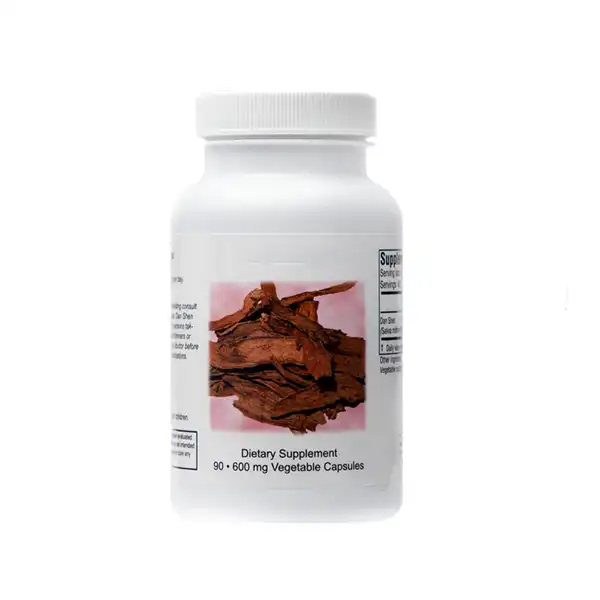What are the benefits of Okra Supplements?
 2025-07-31 11:05:03
2025-07-31 11:05:03
Okra's Supplement Nutritional Benefits
![]()
Okra Capsules are renowned for its nutritional value. An excellent source of dietary fiber, okra also contains high concentrations of vitamins A, B, C, and K. It's also a significant source of calcium, potassium, iron, zinc, and is high in folate.
If that's not enough to satisfy you, okra also boasts powerful antioxidant and anti-cancer properties. Low in calories but packed with vitamins, nutrients, and minerals, okra definitely holds its place among the most nutritious foods.

Benefits and Uses of Okra Supplements
![]()
Digestive Health:
Okra is an excellent natural laxative. It nourishes the stomach and intestines because it is rich in water-soluble dietary fiber, which promotes bowel movements, prevents constipation. Okra's mucilage adheres to the stomach lining and protects the stomach, making it particularly beneficial for those with gastritis and stomach ulcers. While eliminating waste, okra removes toxins from bile acids and excess cholesterol. Okra can also heal ulcers, treat irritable bowel syndrome, help prevent colon cancer, and increase the number of beneficial bacteria in the intestines.
Heart Health:
As mentioned above, the soluble fiber in okra binds to cholesterol and washes it away, thereby reducing the risk of heart disease and atherosclerosis.
Blood Sugar:
By regulating sugar absorption in the intestines, okra can stabilize blood sugar.
Blood Health:
Okra promotes red blood cell production, helping to prevent anemia. Eating okra helps maintain the elasticity and toughness of capillary walls, while its high vitamin K content aids in blood clotting. Asthma:
You can reduce asthma attacks by adding okra to your diet. This vegetable is rich in antioxidants and vitamin C, making it highly recommended by doctors for respiratory health.
Bone Strength:
Okra is high in vitamin K, making it a good source of bone strength and protection.
Eye Health:
Because it's rich in antioxidants, okra has beneficial properties for vision, helping to prevent cataracts and glaucoma.
Immune System Support:
The high concentration of vitamin C and antioxidants boosts your immunity and reduces your chances of catching a cold.
Pregnancy:
Eating okra is recommended for pregnant women or women during pregnancy. Okra contains folic acid, which reduces the risk of neural tube defects in babies.
Heat Stroke:
If the scorching summer sun has left you feeling drowsy, eating okra can help alleviate heat-related fatigue and exhaustion.
Depression:
A little-known fact is that okra is chock-full of antidepressant compounds. Because it's rich in soluble and insoluble fiber, as well as beneficial gut flora, studies show that these properties can help increase motivation, enhance cognitive function, and promote overall mood, preventing depression and irritability.
Protecting the Immune System:
Okra is rich in antioxidants, which protect the immune system from harmful free radicals and prevent cell mutations.
Skin:
Rich in vitamin C, eating okra can help you achieve a healthy and radiant complexion. Vitamin C helps maintain a youthful appearance, aids in the growth and repair of body tissues, reverses hyperpigmentation, promotes collagen formation, and revitalizes damaged skin.
Okra Supplements and Diabetes
Some have speculated that consuming okra may be a natural, alternative treatment for diabetes. For years, people have eaten okra to help regulate blood sugar levels, making it an ideal dietary choice for those with diabetes.
Although Okra Capsules is not a magic cure for diabetes, scientists have found that consuming okra can offer some benefits to diabetic patients:
Study 1
In a study published in 2011, researchers in India fed diabetic rats a combination of oatmeal and water. They found that the rats that ate okra had reduced blood sugar levels and sugar absorption.
Study 2
In a study published in the journal Pharmaceutical and Biological Allied Sciences, researchers fed okra powder and peel extract to diabetic rats. After feeding the rats for 28 days, the researchers found a significant reduction in blood sugar levels.
These findings are promising, but it's unclear whether they can be replicated in humans. While adding okra to your diet can help regulate sugar levels, there's no scientific evidence that okra is a treatment for diabetes.
In the meantime, it's best to use okra supplement in conjunction with a healthy diet, daily exercise, and maintaining a healthy weight.
A Diverse Range of Nutrients of Okra Supplements
Each 100 grams of young okra contains approximately 4 mg of vitamin C, 1.03 mg of vitamin E, and 310 micrograms of carotene.
It is also rich in trace elements such as zinc and selenium, and is an ideal source of calcium, which helps boost immunity.
Red okra, which is darker in color, is slightly higher in carotenoids and anthocyanins; green okra is higher in chlorophyll.
Okra with fuzz is fresher.
Based on its name, many people mistakenly believe Okra Capsules is exclusive to autumn. In fact, okra can be eaten year-round these days, but due to its cooling properties, it's more commonly recommended in summer or hot climates.
To identify a good okra, we recommend the following five visual indicators:
Length: The smaller the okra, the more tender it is. Okra between 5 and 10 cm is best; be wary of okra over 10 cm.
Appearance: Fresh okra is plump, with a uniform, bright color and no wrinkles, spots, or blemishes.Fuzz: Fresh okra has a layer of white fuzz on its surface. If the fuzz is well-preserved, it indicates good storage. The whiter and tenderer the fuzz, the younger the fruit.
Softness: Gently pinch the okra until it feels firm and firm. The harder the okra, the older it tastes, and its unique aroma and tender texture will be lost.
Smell the fragrance: Fresh okra has a natural fragrance, while stale okra lacks fragrance.

Who should not take okra supplements?
![]()
1. People with weak spleen and stomach: May worsen gastrointestinal discomfort.
How it works: Okra is cold in nature and rich in dietary fiber. Consumption by those with weak spleen and stomach function or those suffering from coldness may irritate the intestines, causing symptoms such as bloating and diarrhea.
Recommendation: Such individuals should reduce their consumption or cook with warming ingredients such as ginger and Sichuan peppercorns to neutralize the coldness.
2. People with kidney stones: Oxalic acid may promote stone formation.
How it works: Okra contains a high level of oxalic acid, which combines with calcium to form calcium oxalate crystals, increasing the burden on the kidneys and the risk of stone formation.
Recommendation: Avoid eating it raw; blanching can remove some of the oxalic acid. If you already have kidney stones, consume only under the guidance of a doctor.
3. People with allergies: May trigger allergic reactions.
How it works: The hairs and mucin on the surface of okra may act as allergens. People with allergies may experience symptoms such as itching and rashes after consumption. Recommendation: Try a small amount for the first time and confirm no allergic reaction before consuming in moderation. Those with known okra allergies should avoid it completely.
IV. Other Groups with Caution
In addition to the three groups mentioned above, the following groups should also exercise caution:
Those with weak gastrointestinal function: Excessive dietary fiber may cause indigestion and abdominal pain.
Children: As their digestive systems are not fully developed, it is recommended that they consume small amounts under adult supervision.











_1753164869089.webp)

_1749111535151.webp)
_1754470372778.webp)
_1756178827473.webp)
_1756782751303.webp)

